Equal parts historic and modern with plenty of culture, Hamburg impresses all those who visit. You could easily spend several days in Hamburg exploring this complex city. What most tourists don’t realize is that Hamburg is just the tip of the iceberg when it comes to destinations in northern Germany. Once you’ve seen Hamburg’s main sights, consider doing a day trip or two to discover other parts of this beautiful country. To get you started, here are some of the best day trips from Hamburg.
How to Get Around
Although you can make many of these day trips with public transport, consider renting a car for the day to give yourself more flexibility and independence. With your own four wheels, you control your time and schedule. Depending on how many people are in your group, renting a car might even work out to be cheaper than other forms of transportation. You can compare car rental deals and find the lowest prices at Rentalcars.com, an aggregation site that searches and displays prices and availability from hundreds of car rental companies, helping you find the best possible car for your budget.
Don’t want to drive or deal with the hassle of public transport? No worries! We’ve listed the best tour for each day trip (where available).
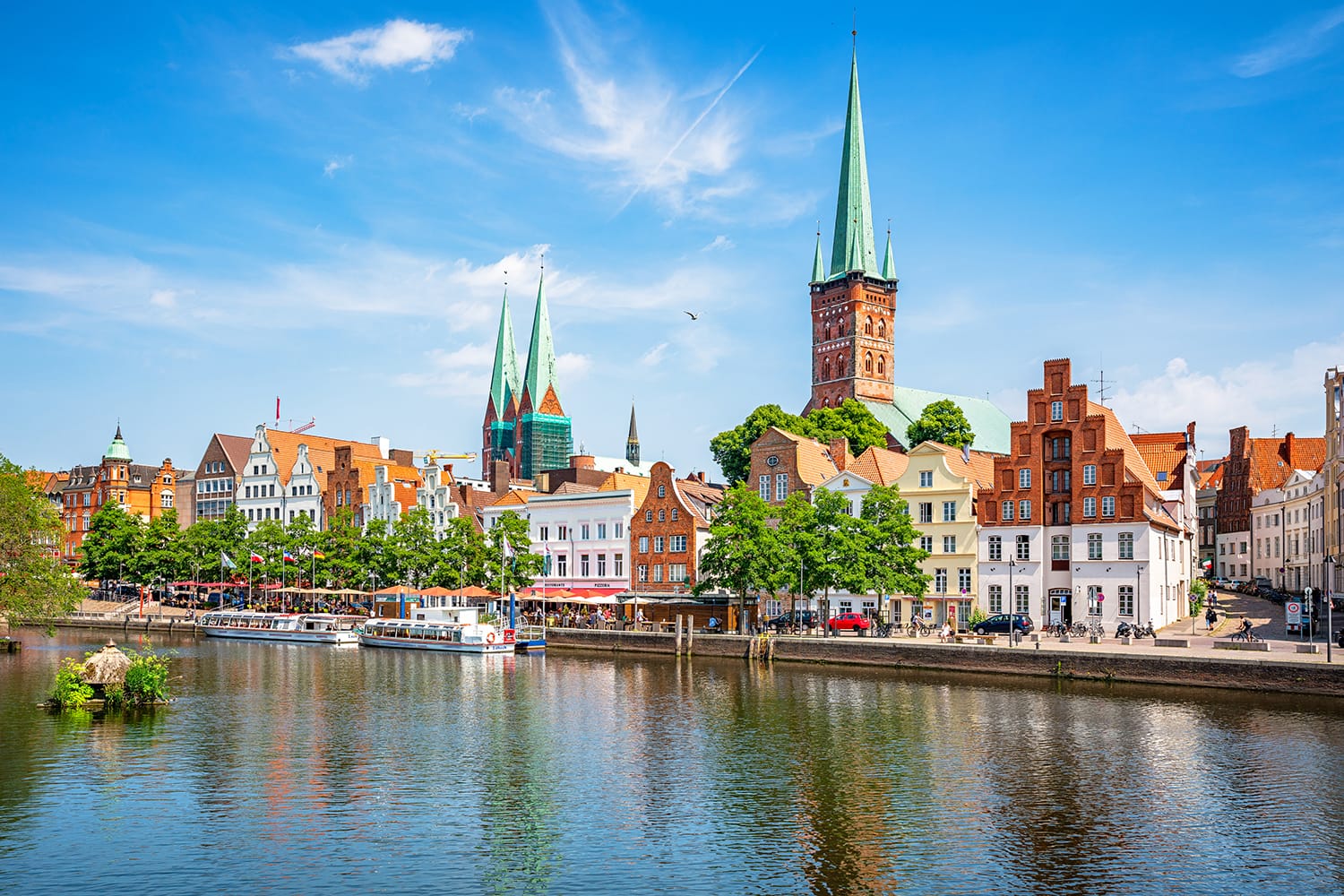
1. Lübeck
Thanks to its gorgeous architecture and deep ties to the historic Hanseatic League, Lübeck is one of the best Hamburg day trips you can make. This city was once the capital of the Hanseatic League, a medieval trading federation, and was given world heritage status thanks to its Brick Gothic architecture. Start with the symbol of the city, the Holsten Gate, before venturing into the lovingly restored Old Town. There among the narrow alleys and gabled houses you’ll find the 14th-century Church of St. Mary, a template for many other churches in Northern Europe. Be sure to take a walk along the waterfront of the Trave River to see quaint city scenery reflected in its water. Lübeck also has museums that highlight its history, from the European Hanseatic Museum devoted to its trading past, to the Büddenbrooks Museum dedicated to the Nobel-prize-winning novel Büddenbrooks set in 19th-century Lübeck.
Getting there: The quickest and easiest way to get from Hamburg to Lübeck is by train, with hourly regional trains making the 45-minute journey.
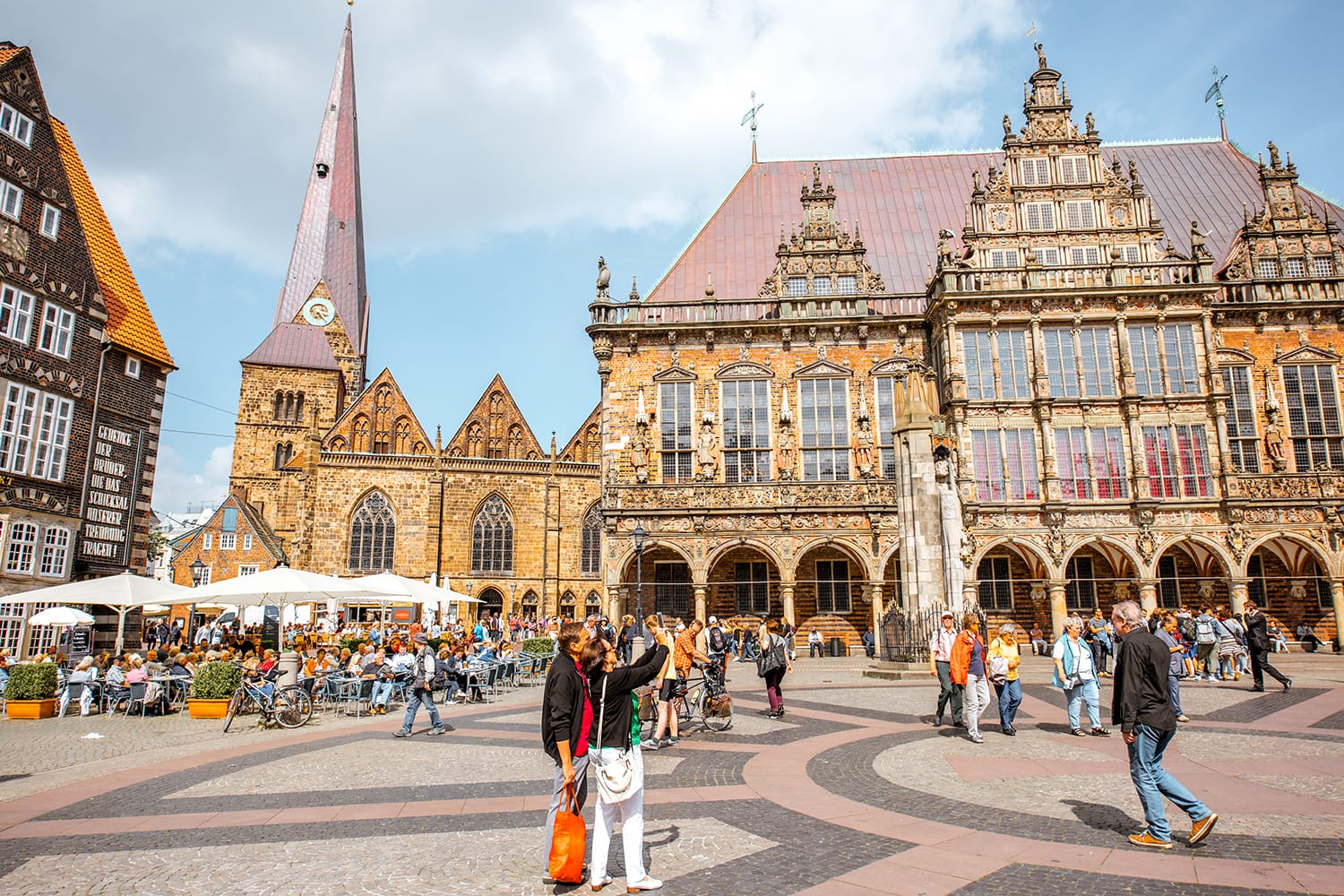
2. Bremen
Another Hanseatic city and one of the best day trips from Hamburg is Bremen. Unlike many cities in Germany, Bremen remained unscathed during World War II and, as such, its Old Town is full of original buildings dating from the 15th and 16th centuries. Head to the city’s main square, Marktplatz, and you’ll find the Bremen Roland statue, a symbol of city rights. The most striking landmark on the square is the World Heritage–listed Town Hall, with its mix of Brick Gothic and Renaissance styles. In the Schnoor quarter, you’ll discover plenty of lovely half-timbered houses, while the Böttcherstraße area is known for having a more eclectic look. Art lovers will want to visit the Bremen Kunsthalle and its extensive collection of Western art that includes works by van Gogh, Rubens, and Rembrandt.
Getting there: To get from Hamburg to Bremen, you can take one of the direct trains that regularly make the hour-long trip.
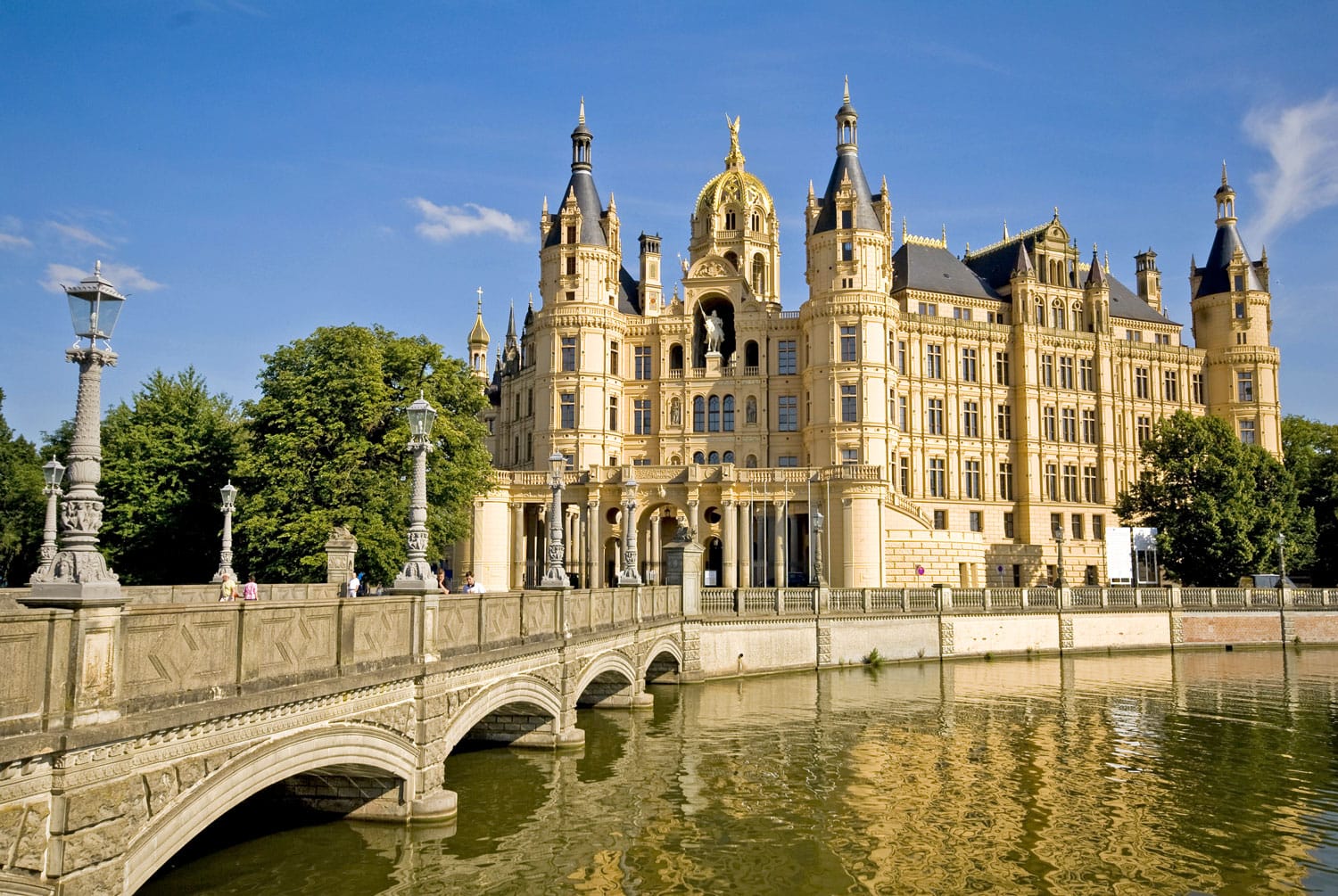
3. Schwerin
Schwerin, in the country’s north, is one of the best places to visit from Hamburg. Begin a visit at Schwerin Castle, a stunning palace on the edge of the Old Town. Even though it now hosts the state parliament, you can still tour its grand rooms, learn its history in the castle museum, and enjoy its serene gardens that look out over the two nearby lakes. As you head toward the city center, stop in at the Staatliches Museum Schwerin, an art gallery full of paintings by Dutch and Flemish masters. In the city center, pass through the low-key Schlachtermarkt, Schwerin’s main square, en route to the majestic Schwerin Cathedral. And since Schwerin is surrounded by lakes, why not take a relaxing cruise across Lake Schwerin or Lake Pfaffenteich and enjoy the city scenery from a fresh vantage point?
Getting there: One of the many easy train trips from Hamburg, Schwerin takes under 1.5 hours to reach with one of the regular train departures.
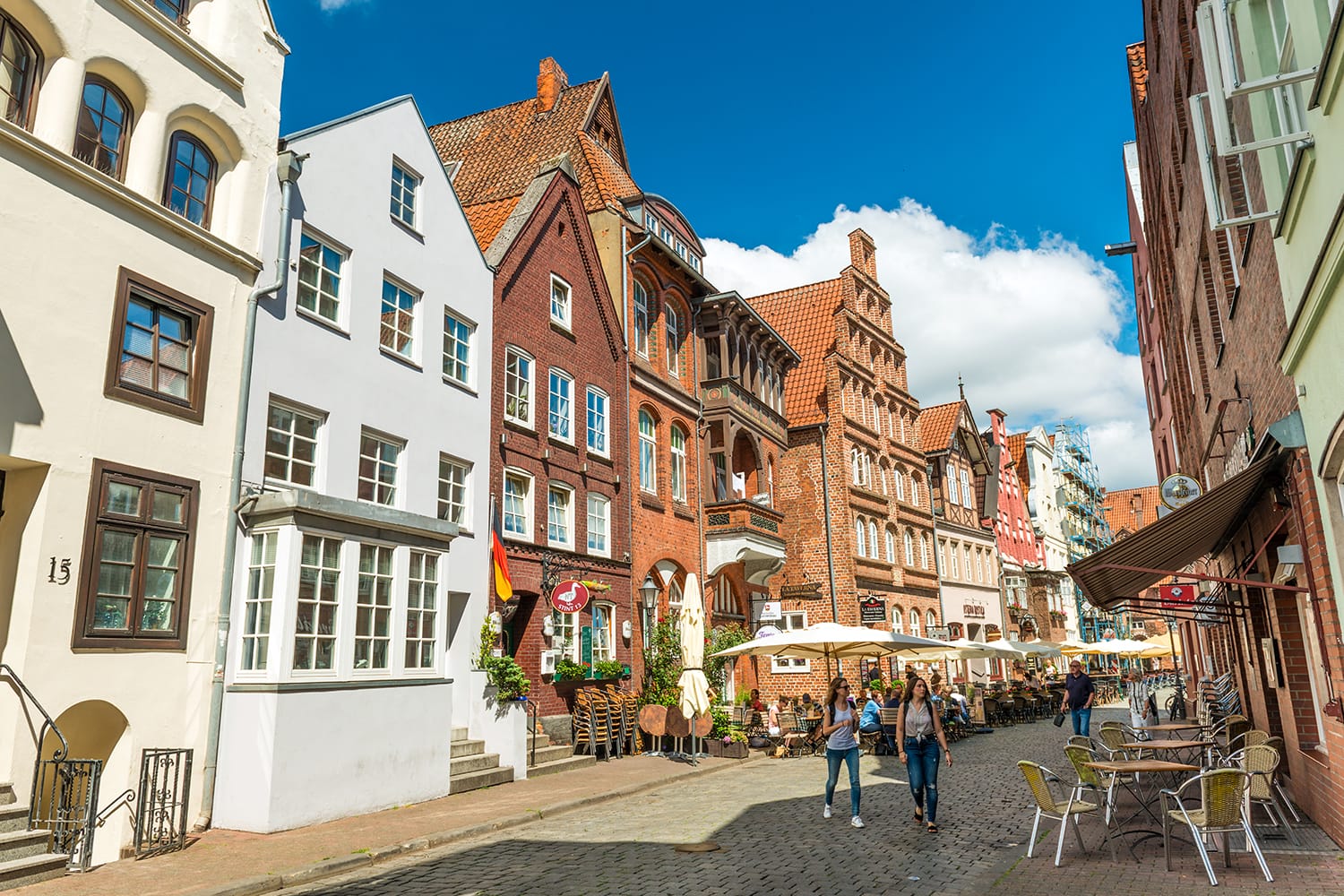
4. Lüneburg
A town known for salt mining may not sound like a great day out, but the town of Lüneburg is actually adorable and loaded with character. On a day tour from Hamburg you’ll have plenty of time to get to know Lüneburg and its reliance on “white gold,” aka salt. Exploring the town, you’ll find many gorgeous half-timbered and gabled houses along its cobblestone streets and lining the Am Sande square. However, there are parts of town where the buildings are actually sinking as they were built over the town’s salt deposits, which have since been hollowed out. You can learn more about the town’s history at the Lüneburg Museum and at the German Salt Museum, over which the saltworks once stood. Be sure to also take a stroll along the riverfront to see the old crane that rests by the harbor.
Getting there: Frequent trains make the journey from Hamburg to Lüneburg, with the trip taking between 30 minutes and one hour depending on whether it’s an intercity or regional train.
5. Altes Land
Altes Land, home to various orchards, fields, and meadows, is one of the more popular areas to see in Germany outside of Hamburg thanks to its simpler rustic atmosphere. Visiting Altes Land allows you a chance to explore the German countryside and hop between small villages, surrounded by groves of apples, pears, and cherries. Altes Land is particularly magical during springtime when the fruit trees are in blossom, while harvest time in autumn leads to plenty of delicious fresh produce. Regardless of the time, however, you’ll find that the region’s cafés are well stocked with fruity baked goods year-round, so there’s little chance of missing out.
Getting there: There are train and bus connections that can take you to Altes Land from Hamburg, with the trip taking around 1.5 hours. That said, to properly experience the region you’re much better off visiting by car so that you can easily get around.
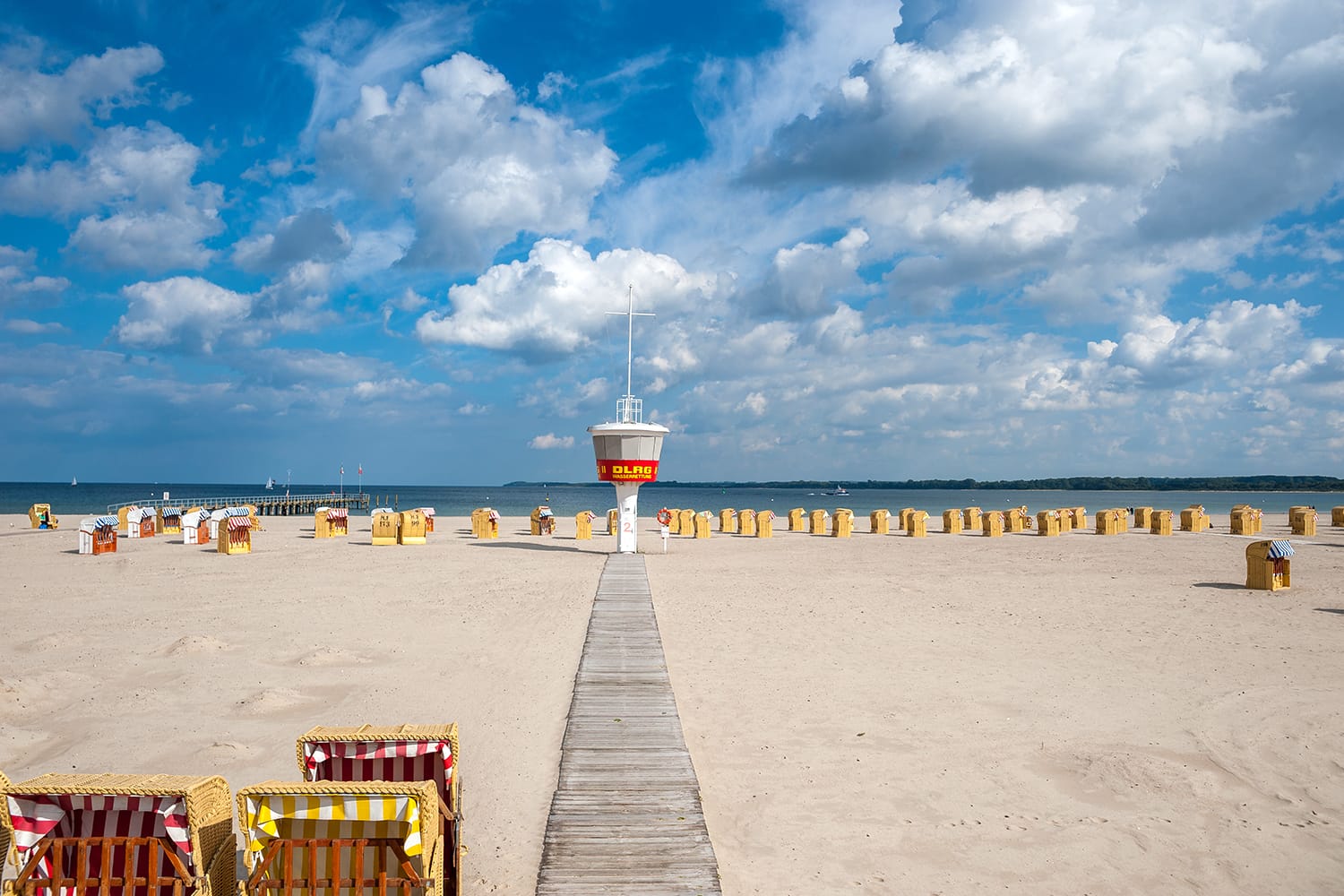
6. Travemünde
For a day out on the coast, head to the pretty seaside resort of Travemünde on the Baltic Sea. Begin with a stroll along the waterfront promenade, wedged between a pleasant park and the city’s great wide beach. There are also quieter beaches over on the Priwall Peninsula, across the town’s busy harbor, which you can reach on the Priwall ferry. In town, you’ll find the town’s historic brick lighthouse, which dates from 1539 and is Germany’s oldest lighthouse on the Baltic Sea. The historic parts of Travemünde are also worth taking a wander through; you’ll come across quaint houses, especially around Jahrmarktstraße. If you’re interested in old ships, be sure to visit the old Passat sailing ship docked in the harbor; the ship was built in 1911 and now serves as a museum.
Getting there: You can travel from Hamburg to Travemünde on hourly trains, connecting through Lübeck, with the trip taking just under 90 minutes.
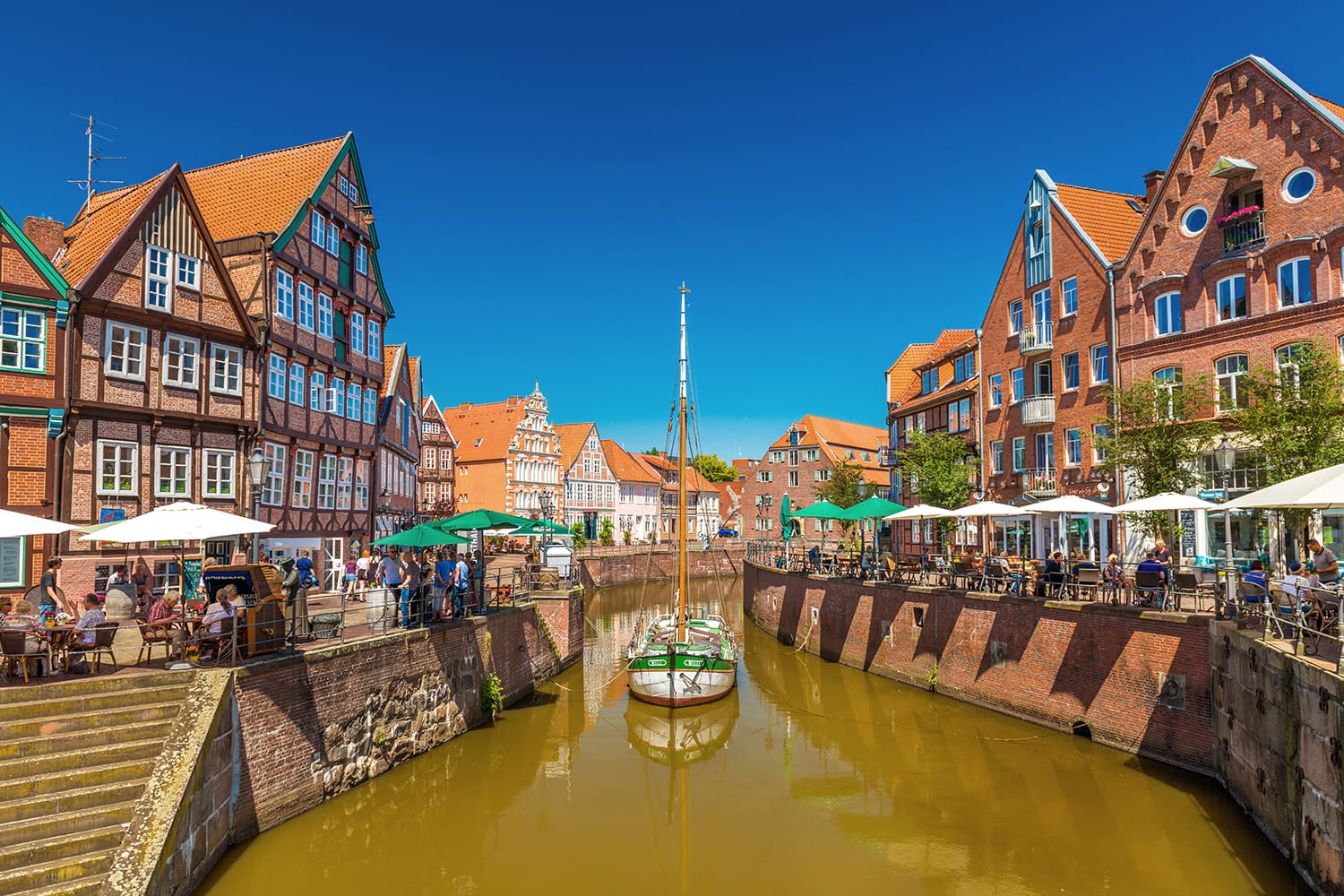
7. Stade
Just a short trip from Hamburg, the small city of Stade is another destination with a Hanseatic history. Located just down the Elbe River from Hamburg, most of Stade’s attractions relate either to the Hanseatic League or its occupation by Sweden following the Thirty Years’ War. Start your visit with a walk to the Hansehafen, the city’s historic harbor. It’s there that you’ll find the Schwedenspeicher-Museum, a museum that charts Stade’s long history of trade and is housed inside an old Swedish warehouse. Nearby stands the Stade Kunsthaus, an art museum in another well-preserved 17th-century Swedish-era building that hosts various temporary exhibitions. Elsewhere in the Old Town, you’ll spot plenty of pretty timber-frame houses that have put Stade on the German Timber-Frame Road tourist route.
Getting there: Stade is just 50 minutes from Hamburg by train, with hourly departures making it easy to reach.
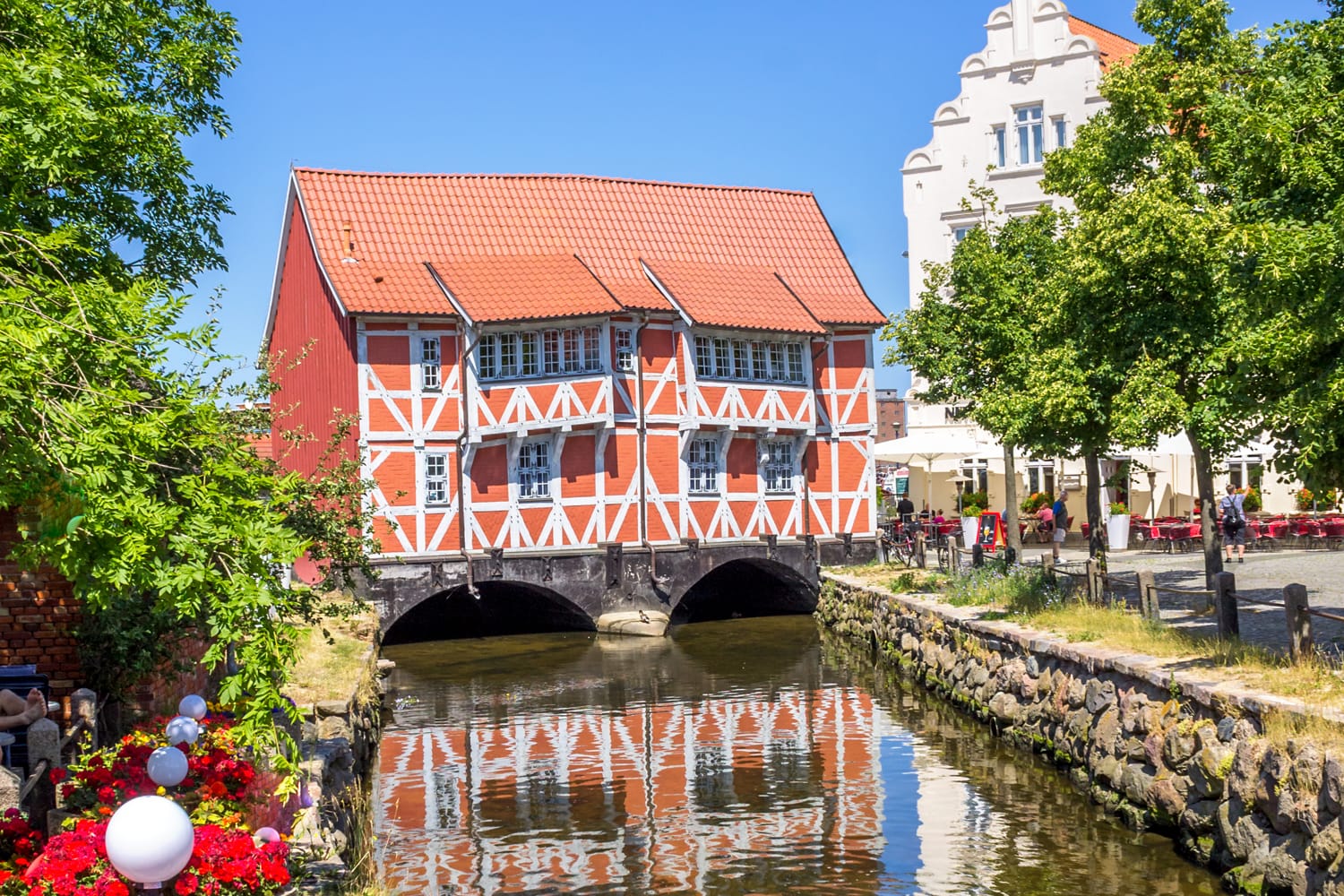
8. Wismar
Another of the classic Hanseatic cities you can visit from Hamburg is Wismar, on the Baltic Sea coast. Visits to Wismar mainly focus on two areas, the city’s Old Town and its equally old harbor. In the Old Town, head for the market square, where you’ll find the Town Hall, many beautiful Brick Gothic buildings, and the iconic Wasserkunst fountain. Dotted around the Old Town, you’ll find several impressive churches, but the Georgenkirche is arguably the most picturesque. At the historic harbor, you’ll again find plenty of traditional buildings, as well as the Wassertor, the last of the city’s medieval gates. Near the harbor area, you’ll also come across the Grube, an old, man-made stream that is one of the prettiest spots in the city.
Getting there: While there are several buses a day between Hamburg and Wismar, trains are the more reliable option because of their frequency. The trip takes two hours, connecting through Schwerin, with hourly departures available.
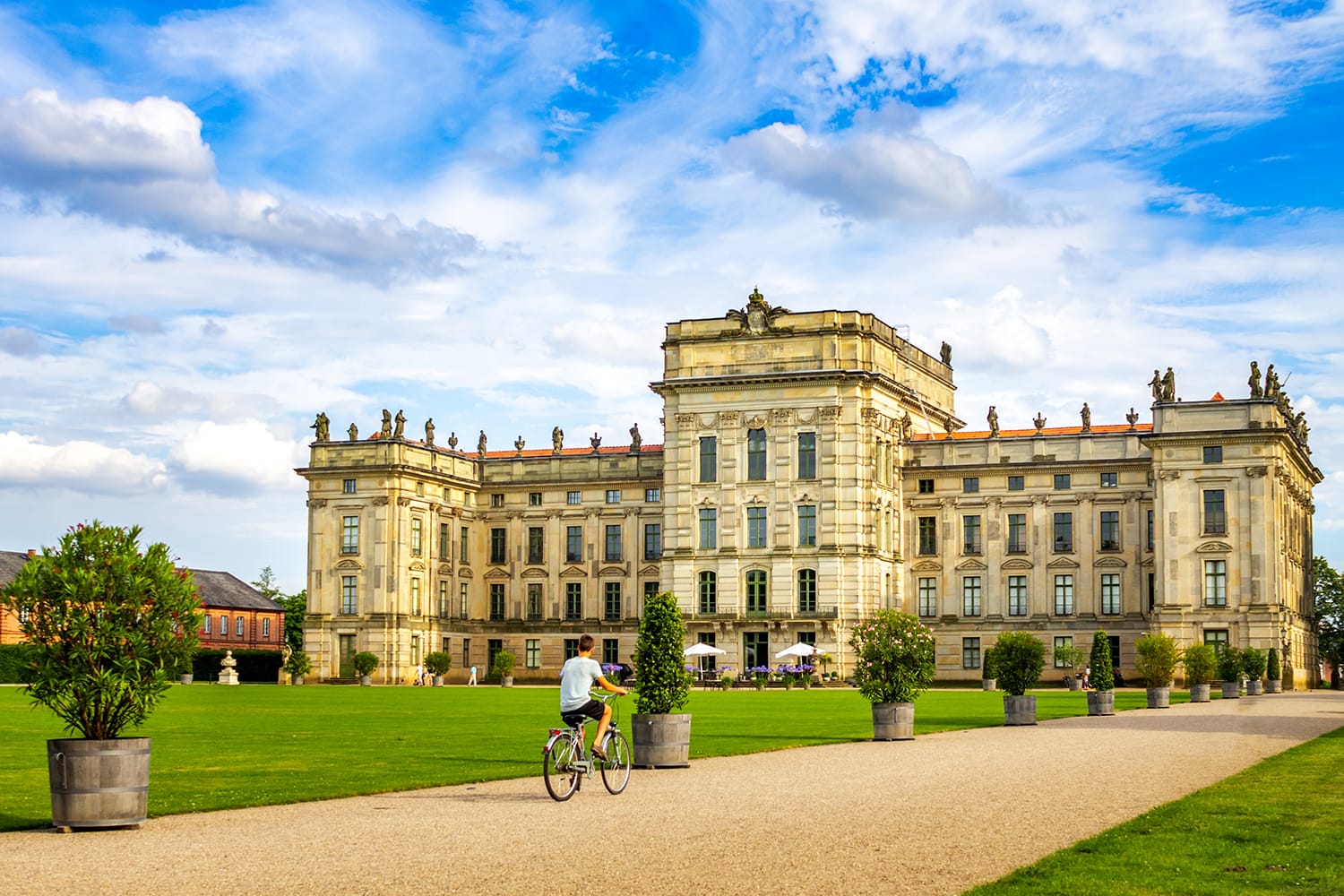
9. Ludwigslust Castle
Germany is known for its enchanting castles, one of which, in the country’s north, is Ludwigslust Castle. Surrounded by an immense park, this magnificent castle has a history that began in 1724 when it was used as a hunting lodge, but it eventually became the capital of the Duchy of Mecklenburg-Schwerin. On a visit to the castle, you can take a tour through its elegant halls, which remain unchanged since the 18th century. As you roam the halls, you’ll also see a great deal of artwork and several antique clocks. After seeing the inside of the castle, you’ll find there’s plenty more to see on the castle grounds, from fountains and bridges to buildings like the St. Helena and Andreas church, or the Hofkirche. The park actually spans many acres and even has a canal running through it.
Getting there: Direct trains run from Hamburg to Ludwigslust every two hours, and the trip takes just under an hour.
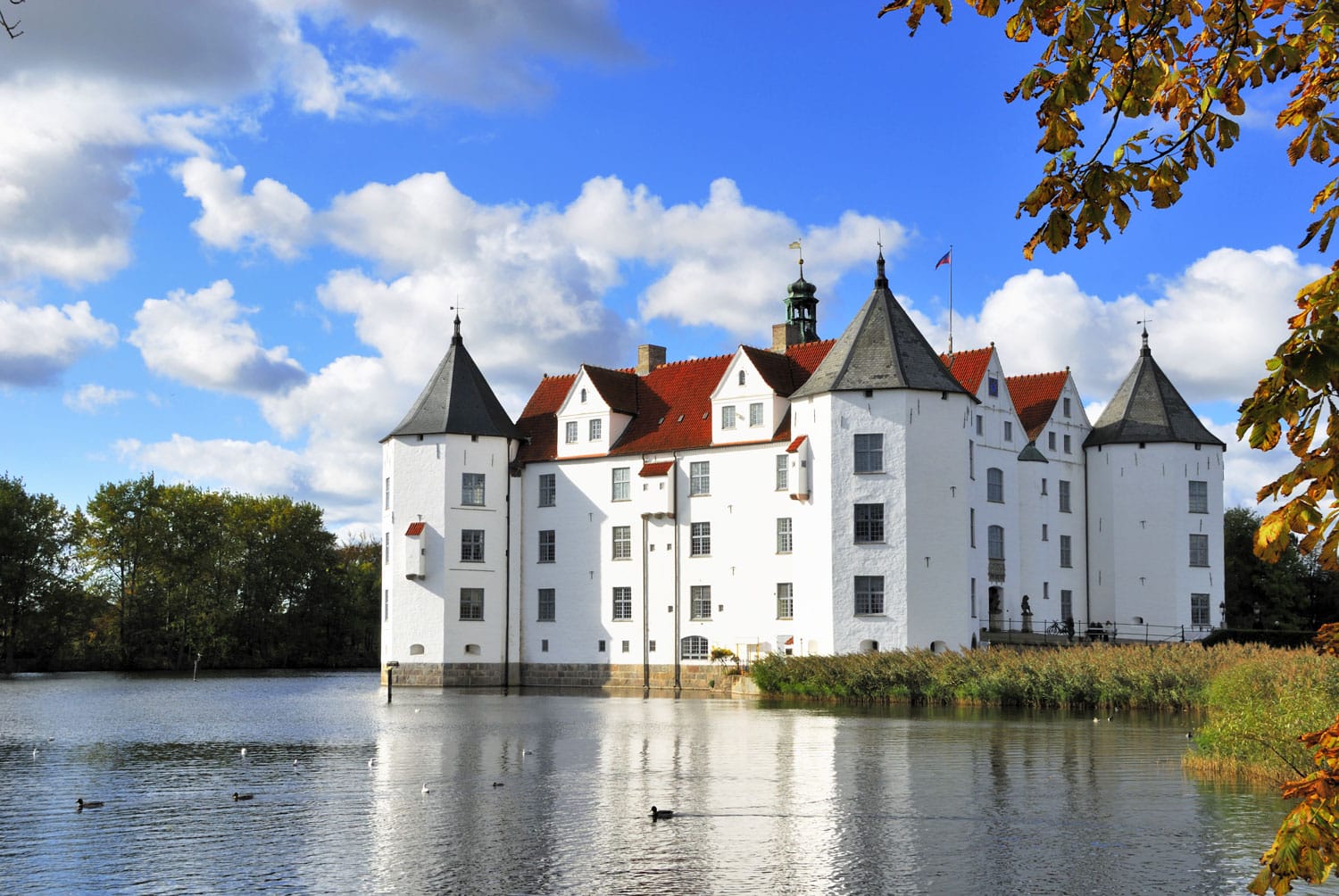
10. Glücksburg Castle
By the Danish border, on Schlossteich Lake, lies the magnificent 16-century Glücksburg Castle. This gleaming castle is said to have once housed the Dukes of Schleswig-Holstein and the kings of Denmark. On a guided tour, you’ll learn about the castle as well as the dukes who called it home. As you visit rooms like the Red Hall and the chapel, you’ll come across gorgeous stuccowork and tapestries from the Netherlands. Glücksburg Castle may be at its prettiest when viewed from afar, so take a stroll around the banks of Schlossteich Lake and see which angle you like best. Of course, there are also features like an orangery and a pretty rose garden to explore on the grounds.
Getting there: Unfortunately, there are no public transport routes that reach Glücksburg Castle from Hamburg, so you’ll need your own wheels to get there.
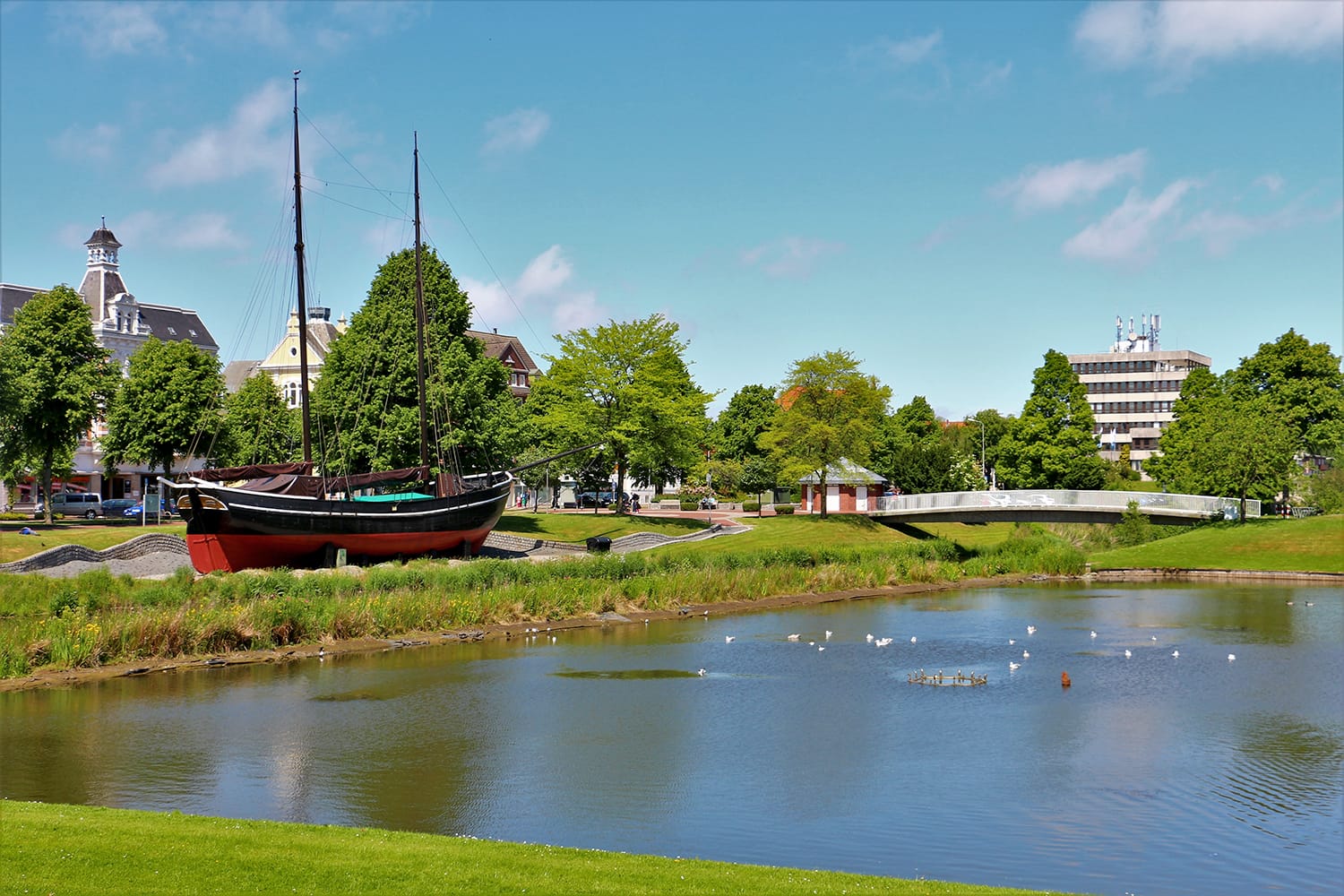
11. Cuxhaven
Located on Germany’s North Sea coast, the small town of Cuxhaven is a great pick for those who want to spend time on the water. Visiting Cuxhaven is more about discovering the sights around the coastal resort rather than the town itself. Begin by walking down Grimmershörn Beach and past the colorful shelters sprinkled along its sands. Following the coast, you’ll reach the Kugelbake, Cuxhaven’s iconic wooden navigational tower. From there, you can see Cuxhaven Beach which, during low tide, turns into a giant mud flat that can stretch for hundreds of meters from the sandy shore. While it’s fun to explore the area and go searching for crabs, be mindful of the tide coming back in as it’s possible to get cut off from the mainland.
Getting there: Getting from Hamburg to Cuxhaven is best done by hopping aboard the hourly train that takes just under two hours.

12. Heligoland
Perhaps your most remote option for a day trip out of Hamburg is the Heligoland Archipelago in the North Sea. This pair of islands are home to magnificent red sandstone cliffs, beaches, and sand dunes. Heligoland also boasts interesting wildlife, such as seals. Thanks to its incredibly fresh air and extremely low pollen count, the islands have also become a bit of a wellness retreat. To learn about the culture and history of the islands, head to the Museum Helgoland on the main island.
Getting there: The only way to reach the remote island of Heligoland from Hamburg is to take the daily ferry there and back; the trip takes just under four hours each way.

13. Wadden Sea
One of the more curious UNESCO World Heritage Sites in Germany has to be the Wadden Sea. As with Cuxhaven, this stretch of coast is known for sandbars and mudflats that are left completely exposed come low tide. It’s in these conditions that you can go mudflat hiking, trudging through the mud even as far as some of the islands off the shore. There’s also plenty to do here when the tide is in, like sailing and kitesurfing. This special coastal area actually stretches right from the Netherlands up to Denmark. A spot that many people like to visit is Bremerhaven, with its mix of traditional and modern sea resorts where you can unwind.
Getting there: It will depend on where along the Wadden Sea you go, but to give you an idea of travel time, a train from Hamburg to Bremerhaven takes just under two hours and has regular departures.
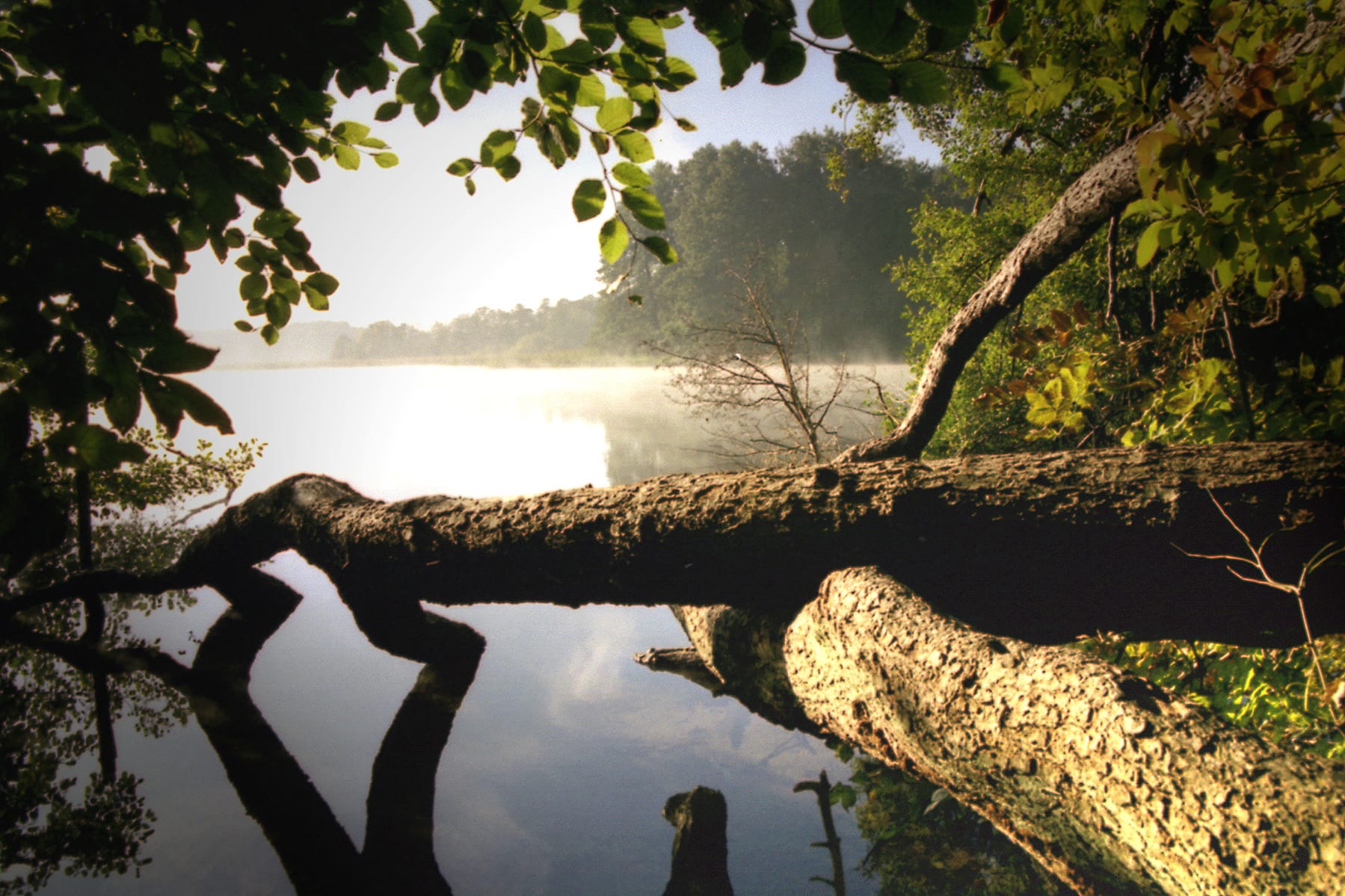
14. Schaalsee
Sometimes the most enjoyable day trips are the ones that don’t receive too much attention from travelers. One such place is Schaalsee. Schaalsee is a lake that lies east of Hamburg and is the heart of the tranquil Schaalsee Biosphere Reserve. From the town of Zarrentin at the lake’s southern end, you’ll find walking trails that lead out along the banks of the Schaalsee and into the calm forest surrounding it. The reserve isn’t restricted to Schaalsee, though; other connecting lakes like the Techiner See and Lassahner See can also be explored. Around the lakes, there are small sand beaches where you can sunbathe and swim; it’s also possible to take boats out onto the water.
Getting there: There are no public transport connections between Hamburg and Schaalsee, so driving is your only option to get there.
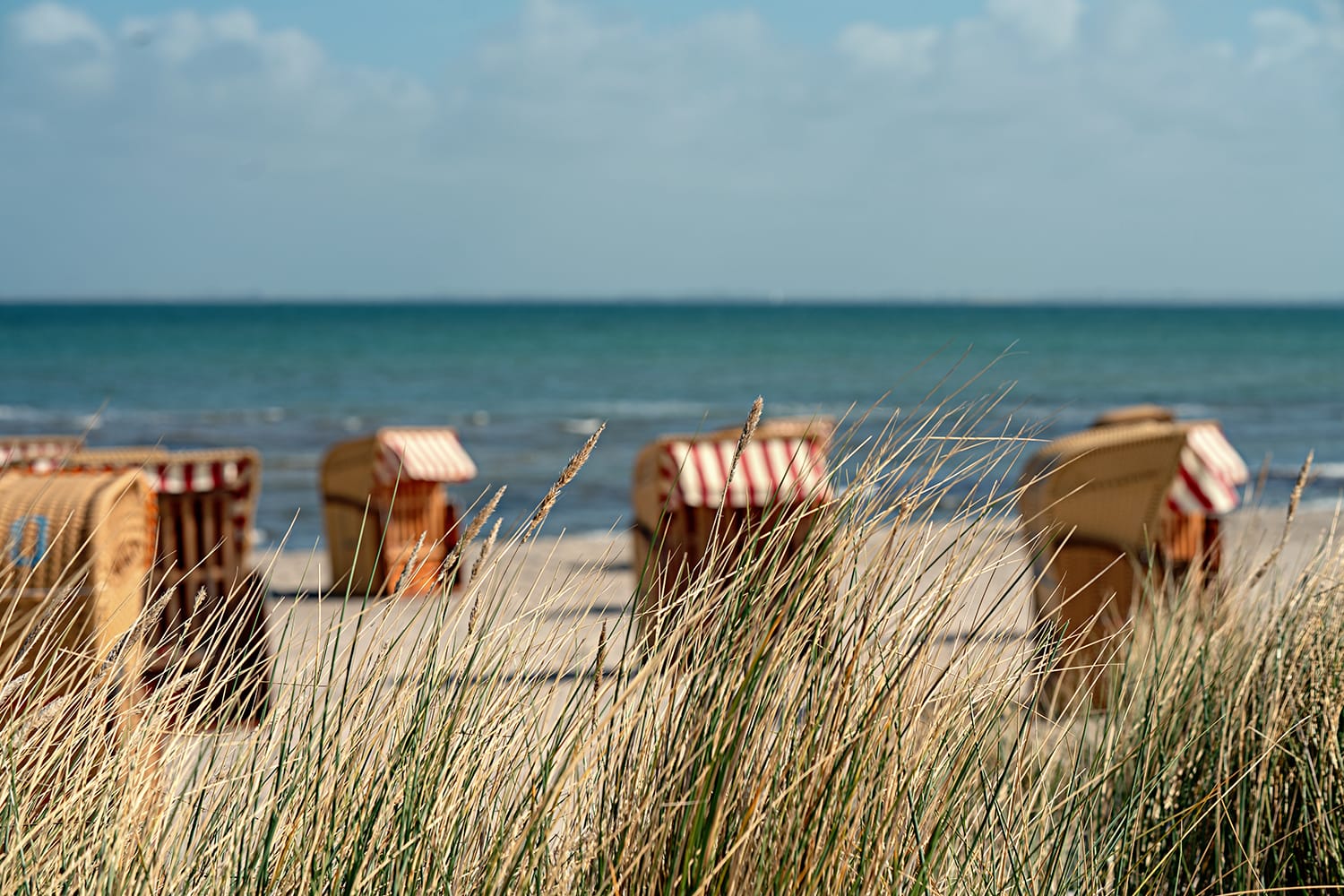
15. Fehmarn Island
If you’re craving some sun, then head to Fehmarn Island, better known to many Germans as the Sunshine Isle. This small island off Germany’s northeast coast is said to receive around 2,200 hours of sun every year, making it a safe bet if you need to see some blue skies. Once there, you can relax on the beach or try some water sports. The conditions off Fehmarn Island are best suited to wind and kitesurfing, with many good spots around the coast. As for sightseeing, you can visit the Fehmarn Butterfly Park or spend some time inside the former German submarine that now serves as the U11 U-Boot Museum.
Getting there: There are only several trains a day from Hamburg to Fehmarn Island on the weekends, with the trip taking just over two hours. Otherwise, your only other option is to drive there.
Those are many of the places around Hamburg worth considering for a day trip. Given all the options before you, it should be clear that an extra day or two in Hamburg won’t go to waste.


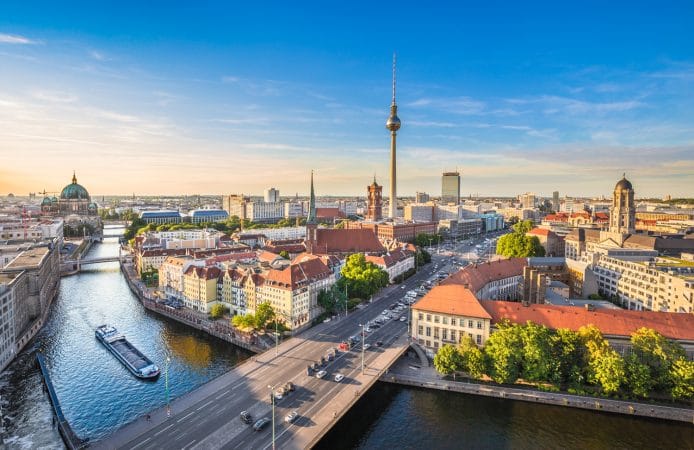


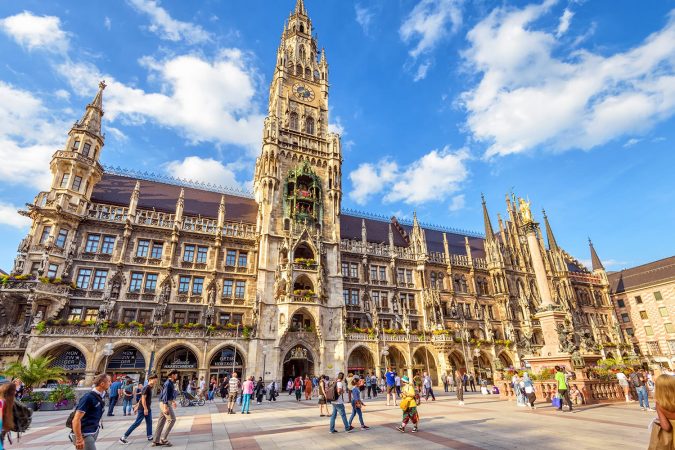
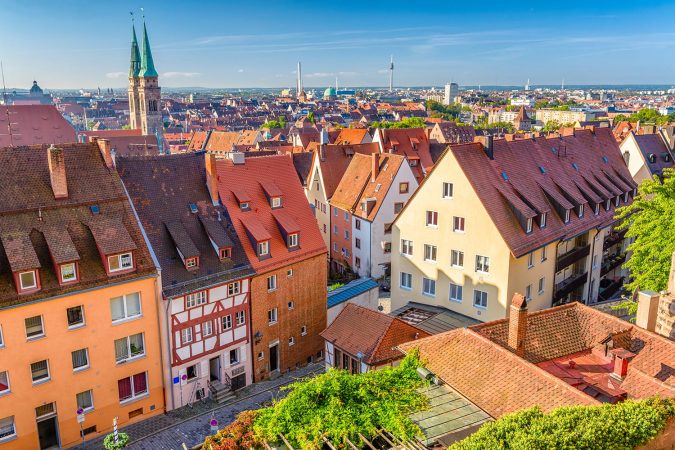

Comments